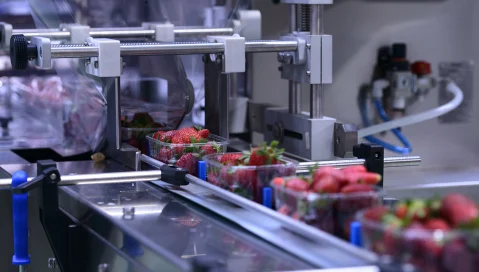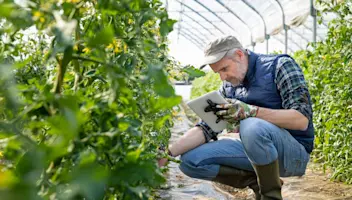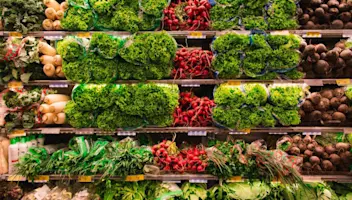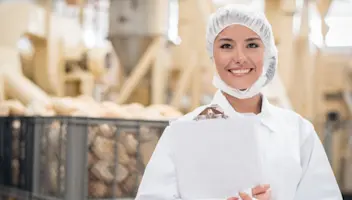EU Packaging Regulations: What You Need To Know as EU Directive 94/62/EC Evolves
EU Packaging Regulations: What You Need To Know as EU Directive 94/62/EC Evolves
EU Packaging Regulations: What You Need To Know as EU Directive 94/62/EC Evolves
25 Juil 2024
John McCurdy
In the food and beverage industry’s collective effort to become more sustainable, the objective of reducing food waste is typically seen as the top priority. That’s with good reason, given that the Food and Agriculture Organization of the United Nations (FAO) estimates that more than 30% of all food globally is lost or wasted.
But, if we are to achieve true sustainability for our food and beverage systems worldwide, two other related issues must also be addressed—the use of excessive and nonbiodegradable packaging materials; and the generation of packaging waste.
The policymakers of the European Union (EU) acknowledged that fact nearly three decades ago, when the European Council published Directive 94/62/EC on December 20, 1994. This directive was intended to help prevent the production of packaging waste; promote the reuse and recycling of packaging materials; and facilitate the establishment of a circular economy.
It also set fairly ambitious targets for the recovery (50 to 65% by weight) and recycling (25 to 45% by weight) of packaging materials. That said, it left much of the specifics and means of achieving these goals up to the individual EU member states, and now 30 years later, the group has made less progress than expected and continues to fall short of the benchmarks they set.
As a result, the European Council is replacing the directive with the Packaging and Packaging Waste Regulation (PPWR), which includes more exacting requirements and additional targets for the recycling of specific packaging materials.
In this post, we’ll break down how the PPWR builds upon Directive 94/62/EC and share the perspectives of Anke Kondermann, senior product manager at Aptean, and Joel Haußmann-Leicht, sustainability partner at vegetable producer organization Reichenau-Gemüse eG.
More on EU Directive 94/62/EC and How the PPWR Builds Upon It
As originally published, Directive 94/62/EC required that EU member states implement national programs—including extended producer responsibility schemes and other economic instruments—to reduce packaging waste and minimize environmental impact. It also called for the general promotion of reusable packaging and recycling.
Beyond the aforementioned recovery and recycling targets, the directive set limits on the concentration of heavy metals in packaging materials. Furthermore, it called for national-level marking and identification systems for packaging to be established, and it provided some general guidance on how member states should track and report the results of their efforts.
With time, though, these stipulations have proven to be insufficient to compel the member states to comply and make headway toward the targets, and thus the revision and update process was started. First announced in 2020 as part of the Farm to Fork Strategy, proposed in December 2022 and subsequently evaluated, the PPWR was finally adopted in April 2024.
It puts in place parameters for the gradual reduction of single-use plastics in advance of far-reaching bans at the beginning of 2030. It also prohibits the use of per- and polyfluoroalkyls (PFAs) in packaging that makes direct contact with food or drink.
Furthermore, the regulation sets the following recycling targets by packaging material:
75% of paper and cardboard
70% of glass
70% of ferrous metals
50% of plastic
50% of aluminum
25% of wood
Finally, the PPWR establishes minimum requirements for recycled plastic content in various packaging media and provides more specific guidance for the implementation of collection and deposit return systems at the member state level.
In short, the PPWR puts the onus on EU countries and the companies that operate in them to attack the challenge of packaging waste more directly than ever before.
PPWR Insights From Industry Experts
We asked a few questions of Kondermann (AK) and Haußmann-Leicht (JH-L) to get their thoughts on the PPWR and its expected impact on the various sectors of the food and beverage industry.
Q: Why are these new EU packaging regulations and targets for waste reduction and recycling so significant for the food and beverage industry?
AK: Nearly all food and beverage products are packaged to preserve product quality, extend shelf life and ensure safe hygiene. But reducing packaging or replacing it with environmentally friendly material is a challenge.
Following these legal requirements will be necessary for avoiding fines. And that's on top of the pressure to reduce environmental footprint and lower greenhouse gas emissions that companies in the food and beverage industry are already facing.
JH-L: The regulations are not only a major topic due to the new legal requirements—they are also significant in that they are in line with many customers’ requirements. Consumers expect sustainable and environmentally friendly packaging. So when companies can offer that, they can improve their marketing position.
Also, this regulation will drive companies to pursue new possibilities and innovations in packaging materials for a competitive advantage. That will be a collaborative effort along various branches of the supply chain.
Q: Which sub-verticals of the larger food and beverage industry will be most impacted by the new regulations and targets, and why?
AK: In one word: all. It doesn’t matter what kind of food—processed, convenience, dairy, fresh, meat—or beverage is handled.
JH-L: Let’s take the fresh industry as an example. To preserve freshness and prevent contamination, fruit and vegetables are traditionally packed in plastic films or bags. That’s going to have to change with these regulations.
It's worth noting that, independent of these regulations, we’re already getting requests from the retail companies we work with to optimize our packaging material for greater sustainability. Managing this challenge often requires an investment in research and development to find recyclable and eco-friendly materials that don’t compromise health and safety.
Q: What are the best alternatives to single-use plastics and PFAs, both of which are being targeted for elimination by the new regulations?
AK: There are different alternatives to single-use plastics and PFAs, but depending on the industry sector, some are more applicable. Some are quite innovative and novel in nature, like seaweed- or milk protein-based films for dry foods. Others are quite common, like reusable glass containers for beverages.
Keep in mind, materials can seem sustainable on the surface, but their production process has very high energy costs—take organic-plastics and the like as an example.
JH-L: For the fresh produce industry, I see paper and cardboard materials (like molded pulp and wax-coated paper) as the future, particularly those that are produced with recycled materials.
Q: How can Aptean's suite of food and beverage software solutions support businesses in complying with the new regulations?
AK: As a software provider, Aptean can support our customers in complying with these regulations. Furthermore, we can help businesses make sure that all related costs are tracked automatically. Our most notable modules for Aptean Food & Beverage ERP that facilitate these processes are Environmental Tax Management, Quality Control, Trade Management, Profiles and Advanced Workflow.
Our Environmental Tax Management module automatically calculates costs for the plastic and paper used in every shipment of goods within several key European countries (Germany, Austria, Belgium and the Netherlands, to name a few). In combination with our Trade Management module, these costs can be considered in price calculations and grower settlements.
To make sure that goods are received in the appropriate packaging material, our customers can use the Quality Control module in the receiving process. We also support them in the sales process with the Profiles module, which can prevent our customers from sending goods packaged in the wrong kind of material to their customers.
And last but not least, there’s Advanced Workflow, which can support customers as they make adjustments to their processes—such as the implementation of new packaging material—even before they've officially moved forward with the change.
The Right Solution and Provider To Support Your Compliance
Change is a constant in the food and beverage industry, and that’s especially true with regards to compliance. Whether it’s a regulation aimed at increasing sustainability like the PPWR or strict traceability requirements, you’ve got to have flexible and reliable technology to support your adherence and demonstrate your due diligence.
At Aptean, we have decades of collective experience serving food and beverage businesses, providing them with the software they need to remain agile and scale up while satisfying legal obligations and customer demands. Our food and beverage ERP is a cloud-first solution built on the Microsoft Dynamics 365 Business Central platform and sporting unique features purpose-built for the specialized processes of various sub-verticals.
We also offer a wide range of complementary software—including overall equipment effectiveness (OEE), enterprise asset management (EAM), product lifecycle management (PLM) and transportation management systems (TMS)—available for deployment and integration in a seamless environment.
Lastly, we’re a long-term partner committed to mutual success, helping each of our customers enjoy a rapid return on investment and improvements in critical key performance indicators. We’re among the leaders in food and beverage software for a reason—businesses grow with Aptean.
If you’d like to learn more about Aptean Food & Beverage ERP and how it facilitates compliance with PPWR and other industry regulations, request a callback today. You can also request a personalized demo to see the solution in action.
Related Content


Prêt à transformer votre entreprise ?
Nous avons les solutions ERP spécialisées dont vous avez besoin pour relever les défis de votre secteur.






